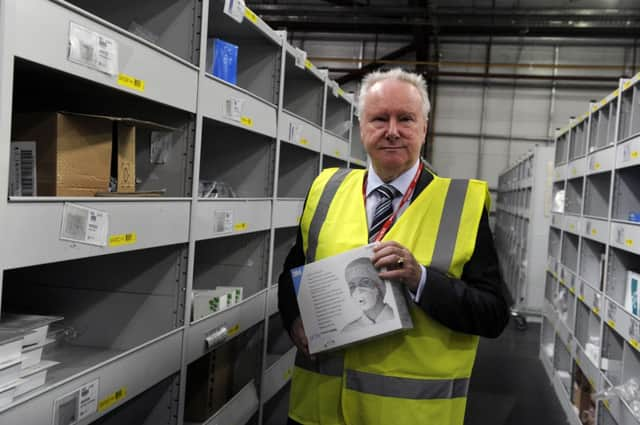Leader: Ebola needs tackled at home and in Africa


It has now killed more than all other known Ebola outbreaks combined, with the total number of reported cases in excess of 10,000. As if this was not concerning enough, the World Health Organisation has said these figures are under-estimates and warned there could be as many as 20,000 cases.
Advertisement
Hide AdAdvertisement
Hide AdHere in Scotland we have watched with concern and sympathy at the plight of those in the areas worst affected. And it is natural to assume that with a relatively small African community here, and no direct flights to affected areas, we could be relatively relaxed that the spread of the virus was unlikely to be a problem on our home shores.
But this would be to overlook that we live in a globalised world with massive trade and air travel between countries and continents. As Alex Neil, Scotland’s health secretary, pointed out yesterday, we should not ignore the regular traffic between West Africa and the North-east of Scotland, as our skilled North Sea oil technicians put their expertise to use in countries such as Nigeria.
Mr Neil was also right to stress that the likelihood of an Ebola outbreak in Scotland remains slim. He said there was no need, as yet, for the general public arriving in Scotland to be screened for the disease. But screening would be brought in if the assessment changes.
The precautions he announced are sensible and to be welcomed. Oil and gas workers returning from west Africa will now be given the same level of monitoring as health and aid volunteers assisting in affected countries, including Sierra Leone, Liberia and Guinea.
Suspected Ebola cases in Scotland currently have to have their samples sent south of the Border for analysis. The administration has now provided funding to NHS Lothian to introduce a national testing service for viral haemorrhagic fevers in Scotland. This will be in place from the start of December.
There is another vital dimension to our precautions: to give what aid and medical expertise we can to help combat the threat of Ebola within West Africa itself. Two Scottish Government ministers will visit the region soon to identify areas where help can be offered to severely stressed health services in the region.
The urgent need to provide assistance at source was driven home by the president of the World Bank as he appealed for thousands of medical workers to volunteer and help contain the growing outbreak, as transmission rates continue to outstrip the international response. Scores of Scottish health workers have already answered the call. Help at the greatest point of need has to be a critical part of our response.
Selecting coffee is no mug’s game
A survey carried out by scientists at the University of Stirling has found that not only are we obsessed with drinking the brew but increasingly fussy about its origin and presentation. The precious coffee snobbery of the Café Nervosa, hilariously sent up in the comedy series Frasier, has spread to our shores – only shorn of the humour.
Advertisement
Hide AdAdvertisement
Hide AdWould that be espresso, sir/madam, or cappuccino, or macchiato, or flat white? A sprinkling of cinnamon or fair trade dark chocolate? Now customers are also required to specify bean type, origin, grade and cultivation. Wine snobs with their talk of wild gooseberries, burnt orchids and forest smoke quail before the growing lingua franca of the coffee connoisseur.
Hide that jar of Mellow Birds. It’s not nearly enough that the bean is “bold” or “fruity” or 100 per cent Arabica. It must be a sustainably sourced Guatemalan or remote Samoan bean grown at altitude and handpicked at dawn with the morning dew still glistening on the plants. The beans, labelled by date and area of origin, must not be ground until moments before serving and on no account are “blends” acceptable. The coffee must be served hot but not so hot as to compromise the integrity of the flavour.
Coffee has long been a serious business for aficionados. Hundreds of pounds are spent on bulky Italian espresso makers with extruding dials, taps and levers and a level of steam and noise to rival Waverley Station in the 1950s.
Pick-me-up caffeine injection is the least of it. Coffee has become an event, a set of complications worthy of Italian opera, and with the greatest drama saved for the end: the price. You’ll need another cup to find the strength to pay it.